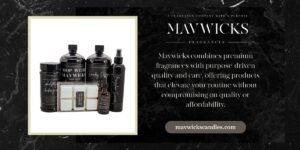By: Jesse Lewis
In a world where wine has long been presented through a male lens, Latoya S. Jordan and Brianna Shelko are pouring something fresh. Their company, Marble Wines, stands out not just for its approachable blends but for the genuine connections it creates among women.
“We knew we wanted to create more than just a product—we wanted to create experiences that foster genuine connection,” says Jordan, who balances her role as co-founder with a full-time career as an attorney in transportation and logistics.
This vision manifests most clearly at their tasting events, where the emphasis is on building community rather than wine education. “I’ve witnessed women who arrived alone leave with new friendships and business connections,” Jordan notes. “One particularly memorable moment was at our Galentines Day event, where women from incredibly diverse professional backgrounds—attorneys like myself, artists, entrepreneurs, and educators—came together and discovered shared passions beyond their careers.”
Shelko, who brings expertise from her background in music and digital marketing, has seen similar magic happen when Marble Wines becomes part of her songwriting camps. “These sessions unite diverse songwriters in an environment where they can be vulnerable with their art while building meaningful connections. Our wines have become a natural conversation starter, helping to break down barriers and spark collaborations.”
Both founders acknowledge that entering the wine industry without traditional credentials brought challenges—and unexpected strengths. “It’s hard to imagine how practicing law in the transportation and logistics industry can prepare you for entering the wine industry, but it did,” Jordan reflects. “My experience in other spaces allowed me to question conventions that didn’t make sense and prepared me to deal with business challenges.”
Shelko agrees: “I’ve learned that the most innovative contributions often come from people who don’t fit the established mold. Women should see their different perspectives as assets, not liabilities.”
This outsider perspective has shaped their approach to marketing. Rather than following industry norms that either masculinize wine to make it “serious” or feminize it in ways that can feel condescending, Marble focuses on authenticity.
“We don’t start with assumptions about what women want—we listen,” Jordan explains. “Our product development begins with conversations across diverse groups of women about their experiences with wine, what they enjoy, and what frustrates them.”
Shelko adds, “We showcase real stories from women enjoying our wines uniquely—whether a celebration with friends, a moment of solitude, or paired with a favorite meal. We don’t use pink packaging or flowery language unless it genuinely fits the wine and our story.”
Building a business while maintaining full lives outside work presents its own challenges. Jordan still works full-time as an attorney, while Shelko manages several other ventures. “We’ve intentionally built Marble Wines with work-life integration at its core, not as an afterthought,” Jordan says.

Photo Courtesy: Marble Wines
Their business model accommodates real life rather than demanding they shape their lives around the business. “We’ve embraced asynchronous communication, flexible deadlines, and focused work sprints that allow us to move Marble forward while honoring our other responsibilities,” Shelko explains.
This reality-based approach extends to their business partnership. The two divide responsibilities based on their strengths—Jordan handles business strategy, finances, and regulatory matters, while Shelko leads marketing and creative direction.
“Our partnership works because we recognize and value each other’s expertise,” Shelko says. “I listen when Latoya speaks on business strategy or regulatory issues because I know that’s her domain of excellence. Similarly, she trusts my judgment regarding our brand voice and creative direction.”
Women supporting women has been crucial to Marble’s growth. When entering the Brooklyn market, a friend’s connections helped place their wines on the shelves at two local stores. “This chain of women supporting women transformed what could have been months of cold-calling into meaningful business relationships,” Jordan shares.
Similarly, Shelko developed a relationship with an event coordinator who waived their vendor fee at a local festival. “This generosity and solidarity gave us premium placement at the event, where we sold many products in just one day,” she says.
The most unexpected lesson they’ve learned is that wine merely serves as the starting point for community building. “Women come to our events seeking connection first, with wine appreciation as a secondary benefit,” Jordan observes. “Wine serves as the socially acceptable reason to gather, while the magic happens in those unplanned moments between sips when barriers come down, and authentic relationships form.”
As they continue to grow Marble Wines, both founders remain committed to creating spaces where women can be their authentic selves. “When we strip away the pretension and jargon that historically made wine intimidating,” Shelko reflects, “women who might never interact in their daily lives suddenly find common ground.”
Marble Wines products are available online at marblewines.com and in select retail locations in Brooklyn, NY.
Published by Jeremy S.









